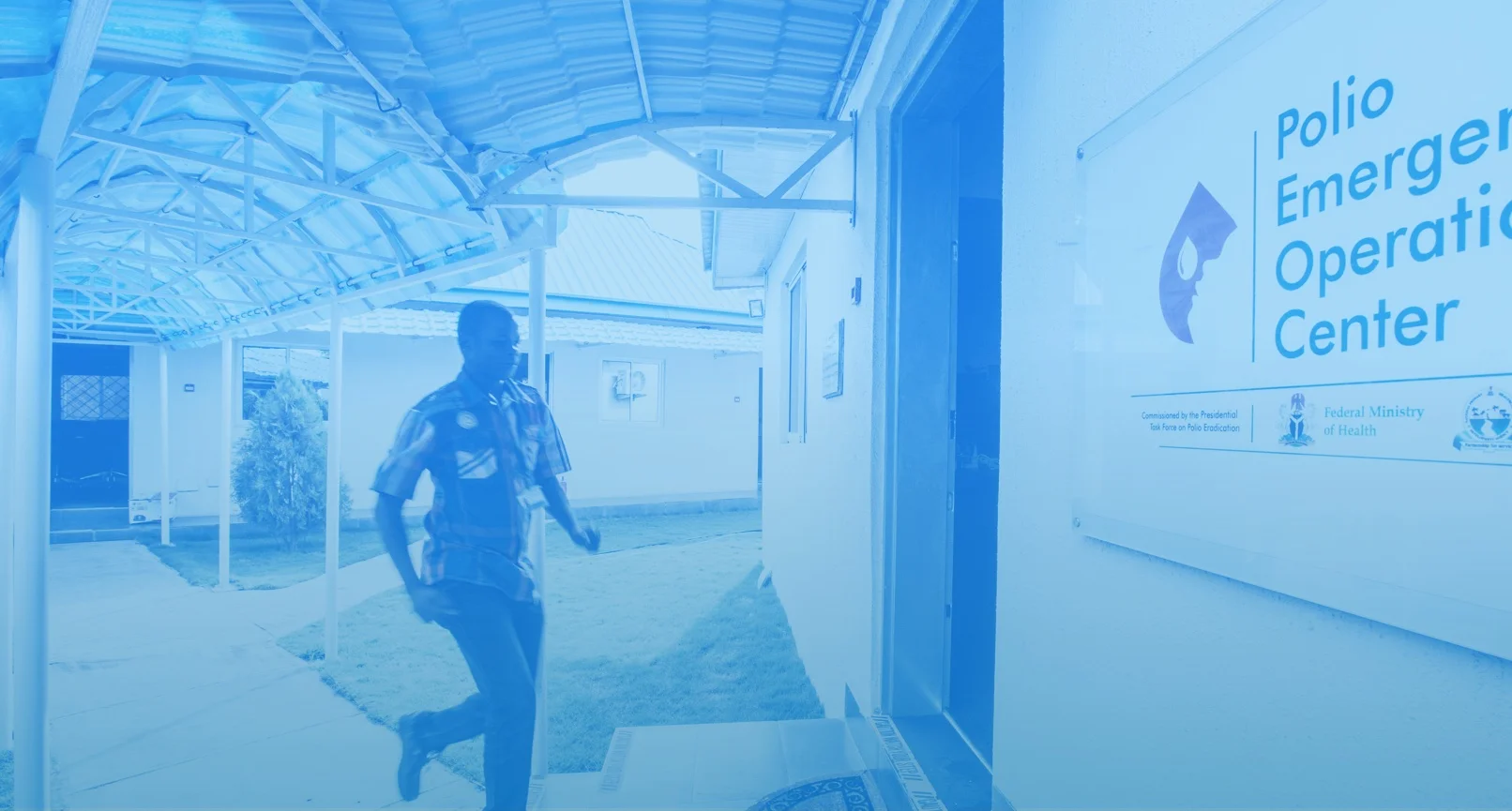Emergency Operation Centers (EOCs) are government led initiatives with the aim of improving information sharing as well as joint programming (planning, implementation, monitoring and evaluation) towards improved public health emergency management.
countries
Nigeria, Liberia, Sierra Leone
funding
Bill & Melinda Gates Foundation, U.S. Centers for Disease Control & Prevention
Kano, Nigeria EOC during renovation
Kano, Nigeria EOC after renovation
We have built and equipped EOCs across West Africa, as part of our goal to strengthen our partner governments’ capacities to respond to public health emergencies.
Nigeria
In 2012, the Bill and Melinda Gates Foundation proposed the building of Polio Emergency Operations Centers (PEOCs) in Northern Nigerian states with the highest infection rates. The National EOC in Nigeria’s capital, Abuja, provides guidance, regulations, and policy directives for implementation in the seven state-level EOCs, located in Bauchi, Borno, Kaduna, Kano, Katsina, Sokoto, and Yobe. As the operational arm of the National Primary Health Care Development Agency (NPHCDA), the Polio EOC system ensures that response functions are centralized and that state-level operations are strategically aligned with the national program and priorities.
The cornerstone of polio EOC system is data management—the collection, storage, and visualization of relevant public health and demographic information. A data portal and corresponding dashboard enable public health officials to monitor key indicators, hold staff accountable for program performance, and provide feedback to stakeholders at the national, state, and local government area levels.
Polio EOCs enable more strategic and effective coordination not only by providing a hub for data management, but also by providing a central location for decision makers to convene, discuss, and plan based on these insights. This includes staff from the Federal and State Ministries of Health, National and State Primary Health Care Development Agencies, BMGF, and the World Health Organization, UNICEF among others.
eHealth Africa was contracted to build and manage these facilities. In 2014, building on the success and experience gained from establishing these facilities, eHA was able to set up two (2) additional EEOCs in Lagos and Rivers States to support the Ebola Virus Disease (EVD) response.
Sierra Leone, Liberia & Guinea
At the height of the EVD outbreak in 2014, EOCs were established in Sierra Leone, Liberia, and Guinea. Through the U.S. Centers for Disease Control & Prevention funding we delivered support to the National EOCs in each country. This included EOCs in each of Liberia’s 15 counties, renovated facilities in 12 districts of Sierra Leone, and a renovated building in Guinea. In Sierra Leone, the EOCs have continued to play a role in important public health emergencies, including the 2017 flooding and mudslide disaster.
The EOCs provide a coordination mechanism to manage the full implementation of the emergency and prevention plans in response to disease outbreaks such as polio or other key health threats. National levels and local departments (i.e state, county, or district) are able to effectively collaborate and share information to support the provision of effective health services for their populations.
eHA's role
Construct and equip EOCs
Manage staff, logistics and the operational facility Including electricity and internet
Participate in project development, partnership building, and implementation
Support human capacity building of EOC staff and decision-makers
Support timely analysis, interpretation and, dissemination of key data
Prepare and disseminate regular reports for decision makers and stakeholders
Strengthen the capacity of government to respond to public health threats via complimentary geographic information systems services
beneficiaries
Primary Beneficiaries:
Ministries of Health policy makers
Government agencies
Health sector partners
Children under 5 years
LGA Agencies
Rural/Urban Communities
[EOCs at national and local levels have ensured] Better use of data for strategic decisions; improved communication among partners[, and] coordinated response
The Journal of Infectious Diseases, Volume 210, Issue suppl_1, 1 November 2014, Pages S40–S49, https://doi.org/10.1093/infdis/jiu318
Impact
78%
decrease in reported polio cases in Kano State, Nigeria in 2014. Learn more about how EOCs have contributed to polio eradication in Nigeria.
24/7
operationally available national EOC in Sierra Leone which participated in the 2017 mudslide response.
+6
public health disease outbreaks detected and reported through Liberia’s EOCs























